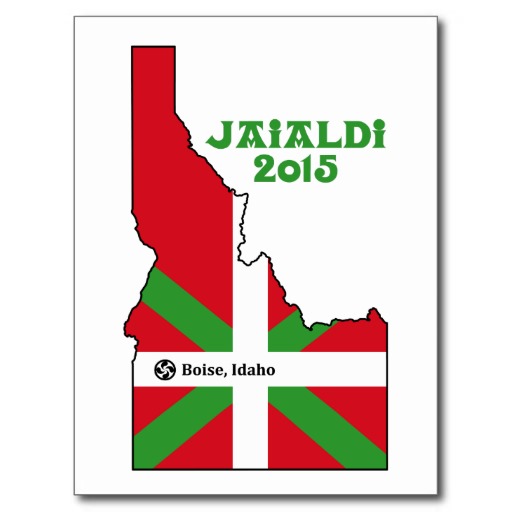“All that is solid melts into air, all that is holy is profaned”
Karl Marx and Friedrich Engels (The Communist Manifesto, 1848)
Between July 28 and August 2, 2015, the city of Boise (Idaho, United States) will held one of the largest Basque cultural festivals outside the Basque Country, Euskal Herria. It is estimated that more than 30,000 people will attend Jaialdi. This is the story of homeland visitors and alike encountering their fellow people of the diaspora, perhaps, for the first time in their lives. It would be an opportunity to reflect on the meaning of “home” and “homeland” for diasporans’ identity as well as notions of “authenticity” and “cultural (re)production”. Where is the Basque Country in the imagery of those who left their land of origin? Where is “home” for Basque Americans? How the homeland imagines the expatriates as part of their “imagined community”?
 Homeland visitors coming to Boise should, if I may, prepare themselves to embrace the many different expressions of Basque identity and culture that will encounter, which may depart from pre-conceived ideas of what Basque culture and identity are as produced at home. Paraphrasing the friendly summer reminder for tourists, posted through many towns across the region, “You are neither in Spain nor in France. You are in the Basque Country,” please remember “Basque America is not the Basque Country” or is it? What do you think?
Homeland visitors coming to Boise should, if I may, prepare themselves to embrace the many different expressions of Basque identity and culture that will encounter, which may depart from pre-conceived ideas of what Basque culture and identity are as produced at home. Paraphrasing the friendly summer reminder for tourists, posted through many towns across the region, “You are neither in Spain nor in France. You are in the Basque Country,” please remember “Basque America is not the Basque Country” or is it? What do you think?
Athletic Club Bilbao vs Tijuana Xoloitzcuintles de Caliente | Boise Basques | Oinkari Basque Dancers | Biotzetik Basque Choir | Euzkaldunak | Basque Museum and Cultural Center Exhibits | Basque Studies Symposium | Memoria Bizia Meeting | NABO Convention | Ahizpak Designs | Amuma Says No | Gayaldi Boise Edition | The Basque Market | Bar Gernika | Leku Ona | Boiseko Ikastola
For more information, please read “The Open Circle” (at “Diaspora Bizia,” EuskalKultura.com).

